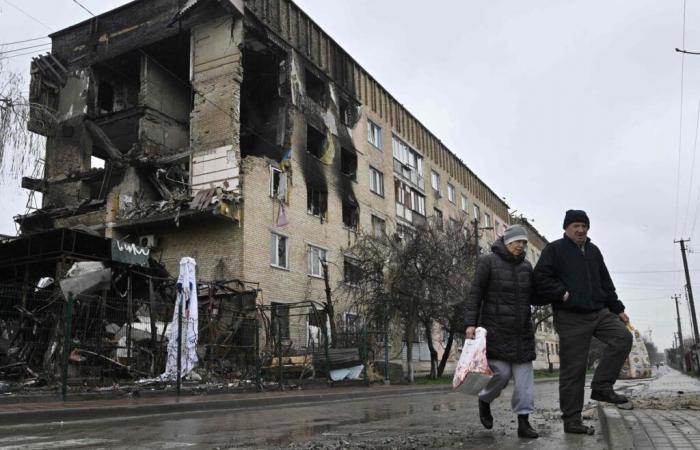But when submitting the building permit, the local military administration, the equivalent of a town hall in times of conflict, sets an astonishing condition: to receive the funds for the project, which had some twenty million euros of private financing, under pretext of becoming the project managers.
“They said […] : + It’s better that you transfer the money you received to our account +. But it doesn’t work like that! », says this Belgian project director. The company refuses and the situation quickly becomes “impossible”, explains Bart Gruyaert.
Administration officials drag things out by constantly adding new conditions to the contract. There also come incentives to “give envelopes” to certain officials, according to him. In September 2023, Neo-Eco reluctantly decided to abandon the project.
Progress and zigzags
This case is far from isolated. Ukraine has suffered endemic corruption since the fall of the Soviet Union, although it has stepped up efforts over the past decade to advance its ambition to join the European Union.
It was ranked 104th out of 180 countries by Transparency International’s corruption index in 2023, a score that is nevertheless increasing. Observers fear that this persistent problem could slow down the reconstruction of the war-ravaged country by dissuading international partners from investing the huge sums needed.
The total cost is estimated at $486 billion by the World Bank, the UN, the European Union and the Ukrainian government. Bart Gruyaert assures that his bad experience at Gostomel did not discourage Neo-Eco from investing in Ukraine, on the contrary.
War in Ukraine: what peace scenarios?
While the war between Russia and Ukraine rages, Georges-Henri Soutou proposes a step aside to consider the modalities of a possible resolution of the conflict, by retracing its genesis over the last decades
He is working on several other projects and encourages other companies to do the same, judging that the country is “making a lot of progress” on corruption. We simply had to learn to “zigzag between the different obstacles”, Bart Gruyaert euphemistically, explaining that he works primarily with the localities he trusts.
In Gostomel, judicial authorities have since revealed a system of “embezzlement” within the military administration. Its then leader, Serguiï Boryssiouk, is accused along with other officials of having appropriated sums intended for the reconstruction of residences, which were therefore left in ruins.
In June 2023, after the first accusations emerged, he was removed from office by decree of President Volodymyr Zelensky. A few days before, he had held a press conference in which he assured that he had done his best to rebuild Gostomel and accused the judicial authorities of “having the wrong enemy”. The total damage amounts to 21 million hryvnias, or nearly 480,000 euros, according to a state audit published in December 2023.
“A question of will”
Similar cases have broken out in other regions, not to mention scandals which have shaken the highest levels of the army or ministries. Andriï Borovyk, executive director of Transparency International, says these cases, while embarrassing, help ensure the problem is not “forgotten.”
The director of the National Agency for the Prevention of Corruption, Viktor Pavlushchyk, says these examples show the “effectiveness” of the authorities – and how far they have come in combating impunity. Even ten years ago, “who would have thought that high-ranking officials could be accused of crimes? And now we have very good examples,” he says.
All areas combined, around 500 corruption cases have been opened since the start of the year by the National Anti-Corruption Bureau (Nabu), which adds that around sixty people have been convicted. By all accounts, much remains to be done.
It is still common for local officials to have interests in construction companies, for example through their family, several of the interlocutors pointed out. To prevent conflicts of interest, Ukraine is seeking to make the reconstruction process more transparent.
Last year, the authorities launched the DREAM platform, a website accessible to all, which lists projects of this type. The goal is to allow investors, citizens or journalists to track the progress of construction projects and find data on their financing or sponsors.
DREAM is still “in the experimental phase” but should, ultimately, be mandatory for all reconstruction projects, notes its manager Viktor Nestoulia. The former director of the Reconstruction Agency, Moustafa Nayyem, believes that transparency will be the key to reassuring foreign investors.






